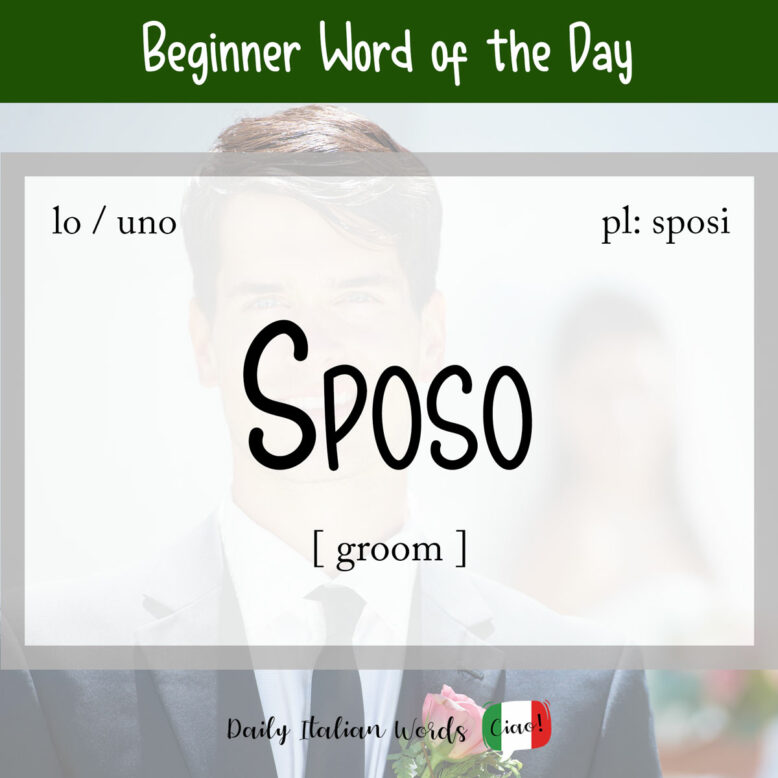Many beginners know that the word for husband is marito in Italian, but a less commonly known word is sposo, which is the Italian for groom or bridegroom.
sposo
groom / bridegroom

The feminine equivalent is sposa which, unsurprisingly, means bride.
In its plural form, sposi, this word can mean two different things depending on the context. On one hand, it can refer to more than one groom, but more commonly, it is used to refer to newlyweds, which can also be expressed as married couple or bride and groom in English. In fact, a very common phrase you will hear after a couple ties the knot is Evviva / Viva gli sposi (Long live the bride and groom!).
Lo sposo è molto elegante.
The groom is very elegant.
Facciamo un brindisi agli sposi!
Let’s raise our glasses to the newlyweds!
With this information in mind, let’s take a look at the definite and indefinite articles used with sposo and sposa:
- lo sposo = the groom
- gli sposi = the grooms / the newlyweds
- uno sposo = a groom
- degli sposi = some grooms / newlyweds
- la sposa = the bride
- le spose = the brides
- una sposa = a bride
- delle spose = some brides

At times, in Italian, the term sposo can encompass the meaning of husband or spouse.
Vuoi tu, Bianca, prendere come tuo sposo il qui presente Timoteo?
Do you, Bianca, take Timoteo as your (lawfully wedded) husband?
In colloquial form, Italians will also use sposo to ask about a friend’s husband.
Allora Enrica, come sta il tuo sposo?
So Enrica, how’s your husband?
One of the most famous works of Italian literature is the historical novel I Promessi Sposi by Alessandro Manzoni. According to the Britannica, it was initially translated into English as The Betrothed Lovers, but soon became known as simply The Betrothed.
Some related terms worth knowing include sposare (to marry), sposarsi (to get married) and sposato (married). The word itself comes from the Latin sponsum, the past participle of the verb spondere, meaning “to promise / guarantee / engage in marriage.”
Heather Broster is a graduate with honours in linguistics from the University of Western Ontario. She is an aspiring polyglot, proficient in English and Italian, as well as Japanese, Welsh, and French to varying degrees of fluency. Originally from Toronto, Heather has resided in various countries, notably Italy for a period of six years. Her primary focus lies in the fields of language acquisition, education, and bilingual instruction.


